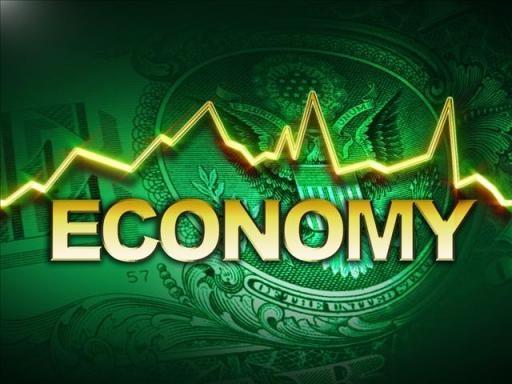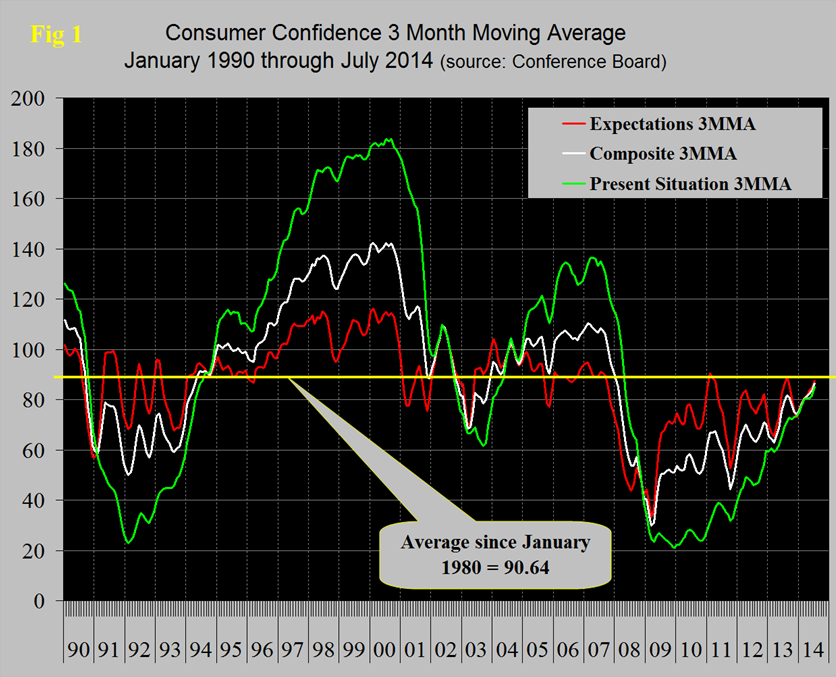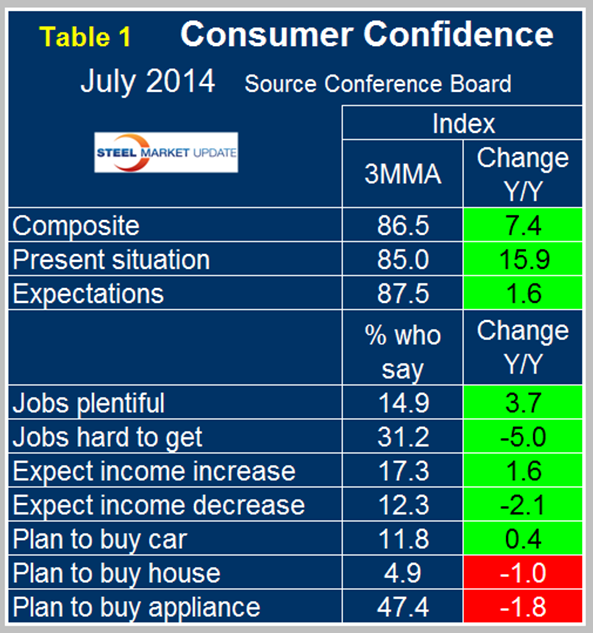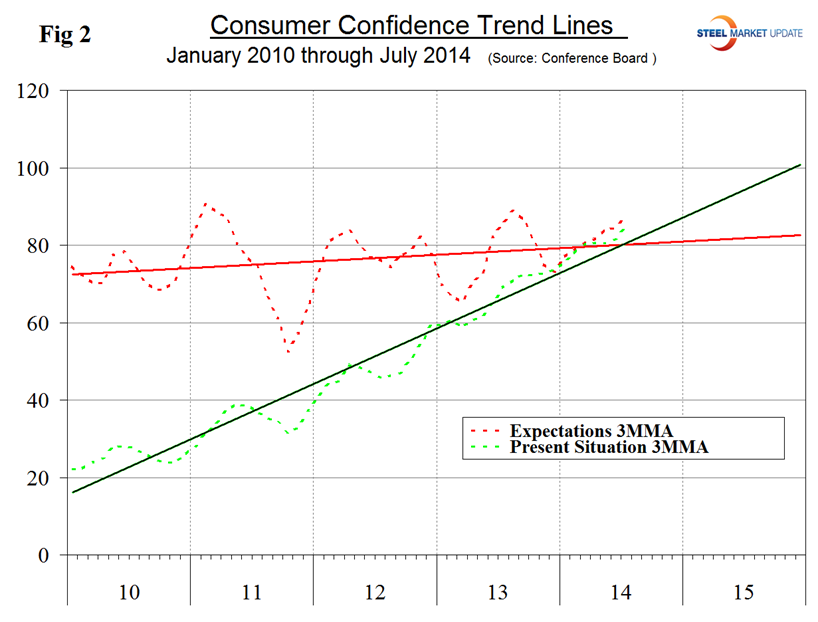Market Data

July 29, 2014
Consumer Confidence in July 2014
Written by Peter Wright
The consumer confidence index increased by 4.5 in June to 90.9. The view of the present situation rose by 2.0 to 88.3 as expectations rose by 6.3 to 92.7, these two components have now converged as they always do at this stage of a recovery after which the view of the present situation will take the lead. The single data point for the composite in July at 90.9, is now higher than the monthly average since January 1980 which is 90.64.
That is not the case with the three month moving average (3MMA) which rose by 3.1 to 86.5, (Figure 1). Note that Figure 1 only goes back to 1990.
On a year over year basis using a 3MMA the composite is up by 7.4 lead by consumers view of the present situation which is up by 15.9, (Table 1).
The employment sub-indexes, job availability and wage expectations, are improving. Intentions to buy both a house and an appliance became negative in May and continued to be negative in June and July year over year. May was the first time in over a year that housing had been negative. Intentions regarding appliances tend to be more erratic but the 1.8 negative result for July is the worst in 18 months. Intentions for auto purchase are up year over year. Both the present situation and expectation sub-indexes are above their 4.5 year trend line suggesting that the improvement may slow by the end of the year, (Figure 2).
The official statement from the Conference Board read as follows:
The Conference Board Consumer Confidence Index Improves Again
The Conference Board Consumer Confidence Index, which had improved in June, increased in July. The Index now stands at 90.9 (1985=100), up from 86.4 in June. The Present Situation Index increased to 88.3 from 86.3, while the Expectations Index rose to 92.7 from 86.4 in June.
The monthly Consumer Confidence Survey, based on a probability-design random sample, is conducted for The Conference Board by Nielsen, a leading global provider of information and analytics around what consumers buy and watch. The cutoff date for the preliminary results was July 17.
Says Lynn Franco, Director of Economic Indicators at The Conference Board: “Consumer confidence increased for the third consecutive month and is now at its highest level since October 2007 (95.2). Strong job growth helped boost consumers’ assessment of current conditions, while brighter short-term outlooks for the economy and jobs, and to a lesser extent personal income, drove the gain in expectations. Recent improvements in consumer confidence, in particular expectations, suggest the recent strengthening in growth is likely to continue into the second half of this year.”
Consumers’ assessment of current conditions improved in July. Those claiming business conditions are “good” edged down to 22.7 percent from 23.4 percent, while those stating business conditions are “bad” was virtually unchanged at 22.7 percent. Consumers’ appraisal of the job market was more favorable. Those saying jobs are “plentiful” increased to 15.9 percent from 14.6 percent, while those claiming jobs are “hard to get” remained unchanged at 30.7 percent.
Consumers’ expectations were more optimistic in July. The percentage of consumers expecting business conditions to improve over the next six months increased to 20.2 percent from 18.4 percent, while those expecting business conditions to worsen held steady at 11.5 percent. Consumers were more positive about the outlook for the labor market. Those anticipating more jobs in the months ahead increased to 19.1 percent from 16.3 percent, while those anticipating fewer jobs declined to 16.4 percent from 18.4 percent. Slightly more consumers expect their incomes to grow, 17.3 percent in July versus 16.7 percent in June, while those expecting a drop in their incomes declined to 11.0 percent from 11.4 percent. (Source: The Conference Board)










